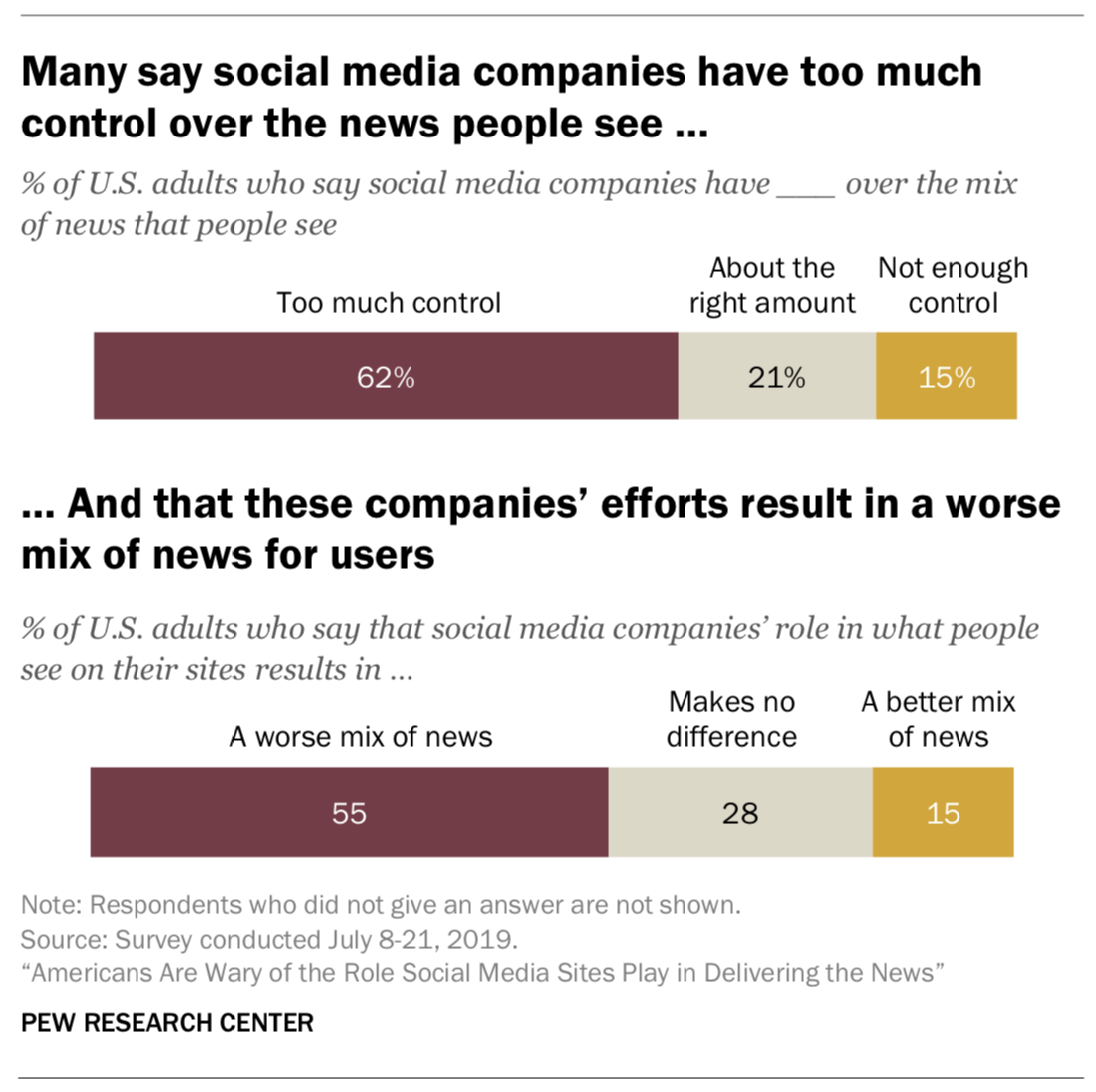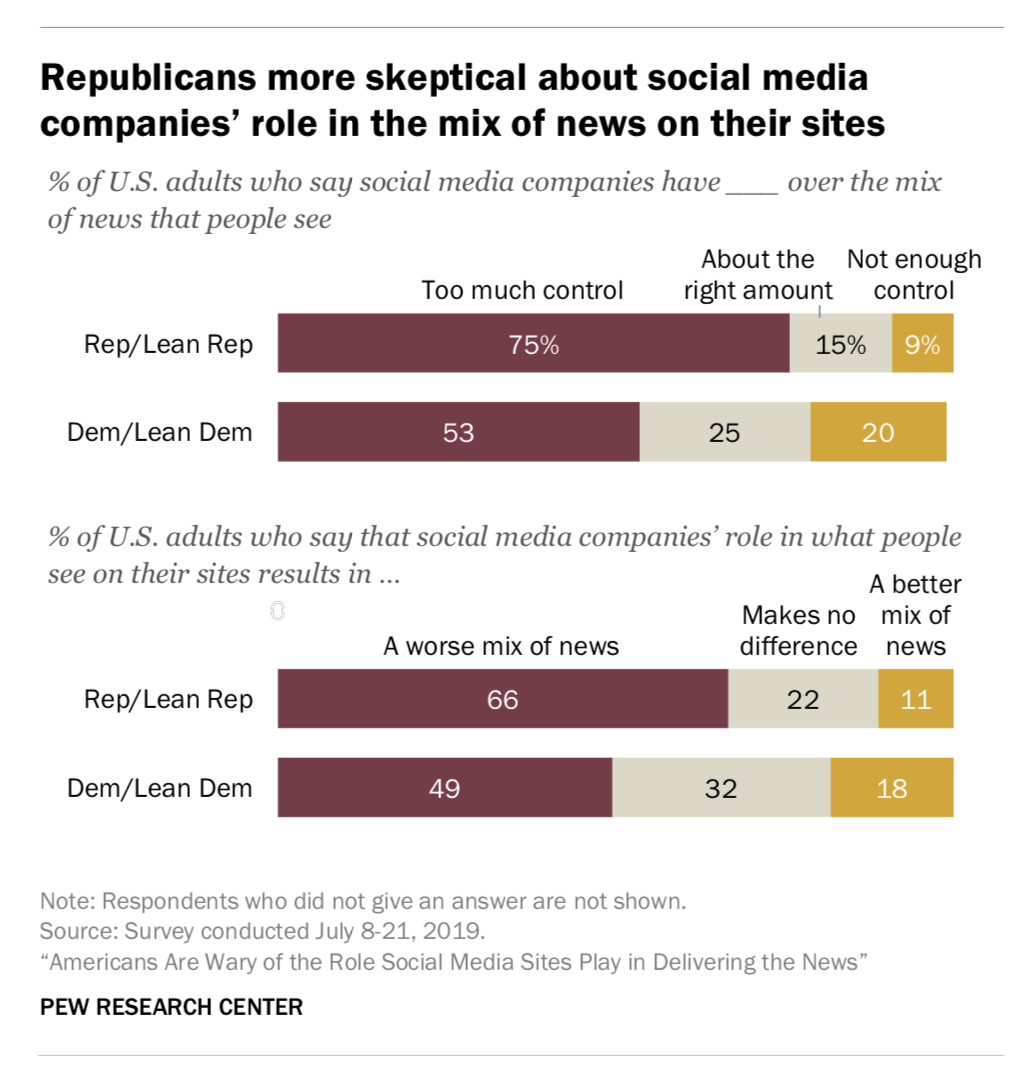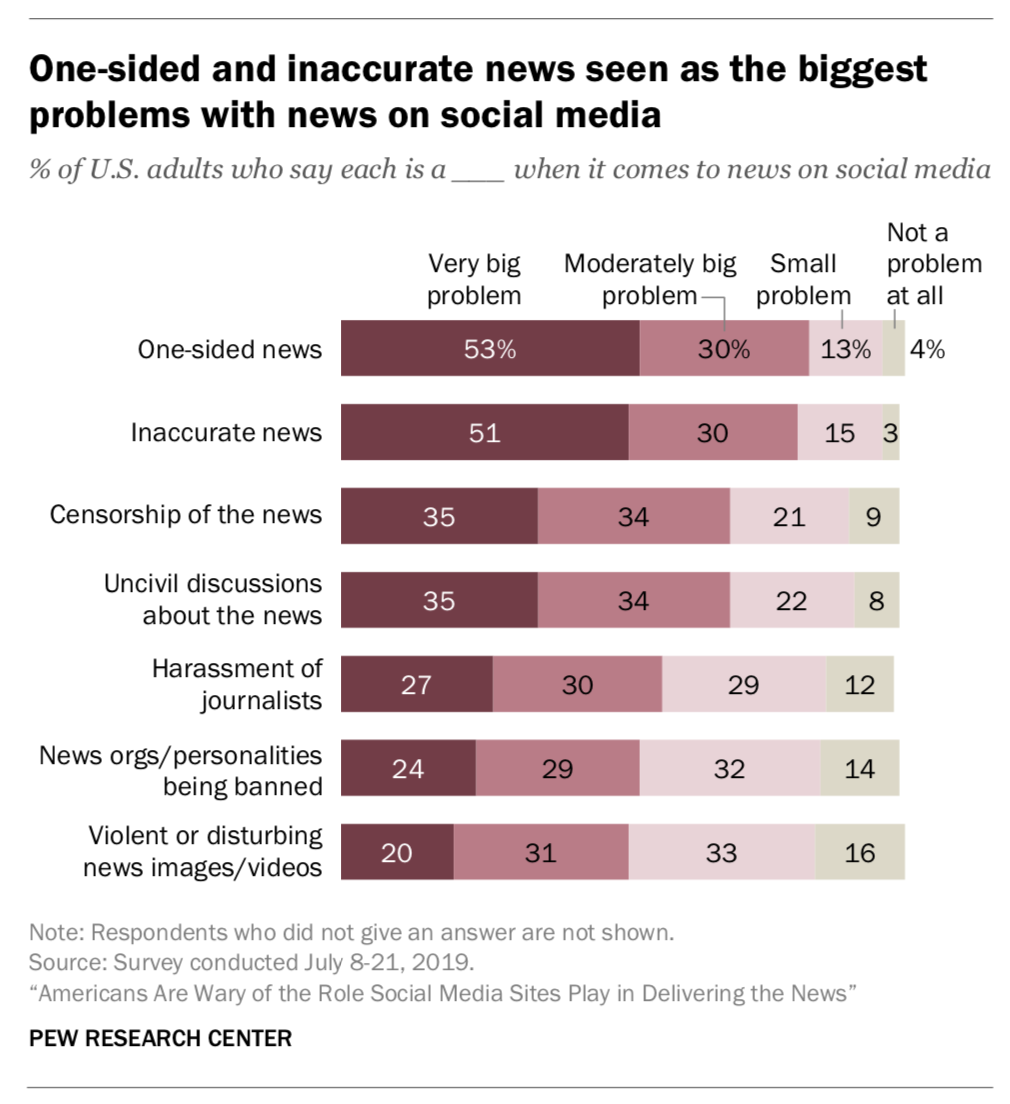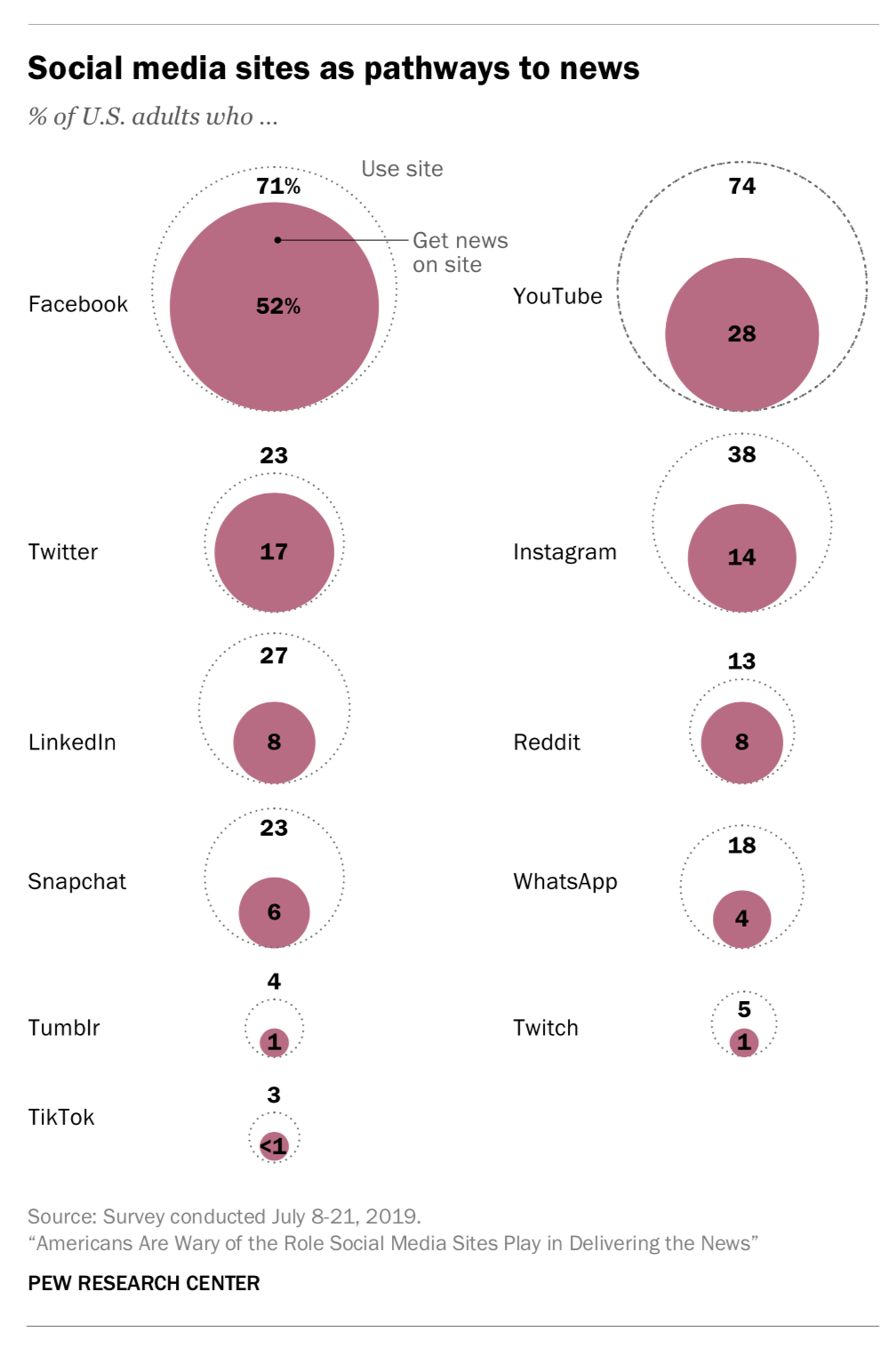U.S. adults are getting news from social media increasingly often — but they also think that the big platforms have too much control over the news they see and that this results in a “worse mix of news” for users, according to a study of 5,107 people out Wednesday from the Pew Research Center.

Both Democrats and Republicans are concerned about social media companies’ power over the mix of news presented, but Republicans are significantly more skeptical — which probably isn’t surprising considering that Republican politicians including Donald Trump have repeatedly demagogued the issue, claiming that platforms like Facebook and Twitter systematically censor conservative news. Both sides bemoan “one-sided news” and “inaccurate news,” but after that there are splits in what people find concerning:
Republicans and Republican leaners are more likely to see censorship of the news as a very big problem on social media (43%) than Democrats and Democratic leaners (30%). Democrats, on the other hand, are about twice as likely as Republicans to say that harassment of journalists is a very big problem (36% vs. 17%).


Nearly half of those surveyed — 48 percent — also say that the news posts they see on social media are either liberal or very liberal; Republicans are more likely to say this than Democrats. This finding is slightly confusing since on social media people can filter the news that they see; a Republican, for instance, can fill their feed almost entirely with news from conservative sources if they want to. It’s possible that respondents are conflating their impressions of their own social media feeds, and of “the media” in general.
Regardless of the complaints, Americans’ use of social media to get news appears to be on the rise, despite some recent evidence it had receded a bit. Twenty-eight percent of respondents say they “often” get news from social media, up from 20 percent in 2018. And Facebook remains “far and away” the most common social source of news: 52 percent of respondents get news there.

Leave a comment